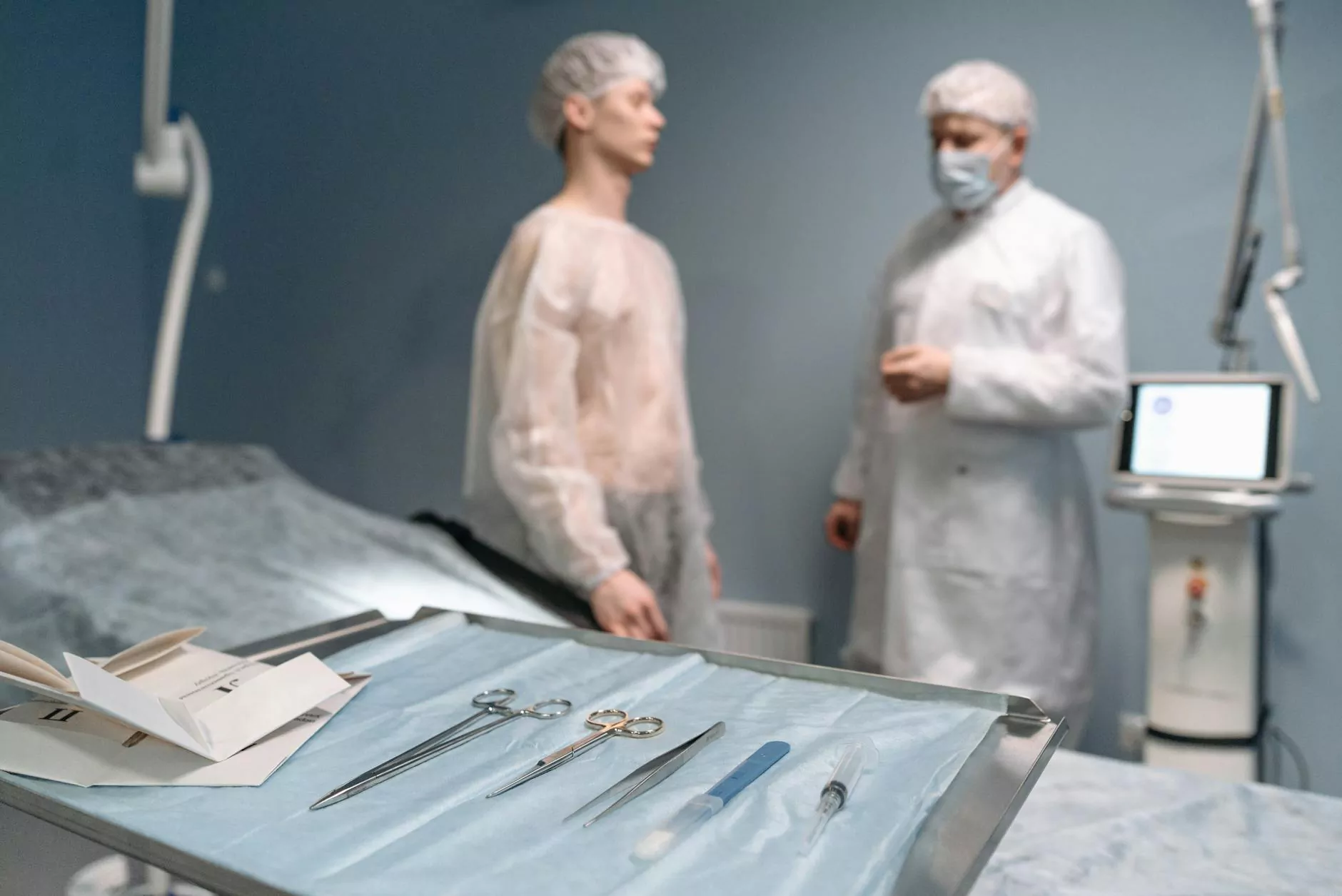Pigeon Chest Surgery Cost: Comprehensive Guide for Patients

Pigeon chest, or pectus carinatum, is a condition characterized by a protrusion of the breastbone. This condition can affect not only one's physical appearance but also various health aspects, including respiratory function and self-esteem. Understanding the pigeon chest surgery cost is essential for patients considering surgical intervention. In this detailed guide, we will explore the costs, factors influencing these costs, and what to expect from the procedure itself.
What is Pigeon Chest Surgery?
The surgical correction of pigeon chest typically involves a minimally invasive procedure known as pectus carinatum repair. The goal of the surgery is to flatten the chest wall and create a more natural appearance, improving the patient's quality of life.
This surgery can be performed through two primary methods:
- Open Surgery: Involves making incisions to access the sternum directly.
- Minimally Invasive Surgery: Utilizes small incisions and the insertion of a camera and instruments to reshape the chest wall.
Understanding the Cost of Pigeon Chest Surgery
Factors Influencing Pigeon Chest Surgery Cost
The pigeon chest surgery cost can vary significantly based on several factors:
- Location: The geographical location of the surgical facility can greatly influence pricing. Urban areas may have higher costs due to increased demand for healthcare services.
- Surgeon’s Experience: Surgeons with extensive experience and specialized training in minimal invasive techniques may charge higher fees.
- Hospital Charges: Different hospitals have varied pricing structures. Facilities equipped with advanced technology may incur higher operational costs.
- Anesthesia Fees: The nature of anesthesia used during the procedure will also affect the overall cost.
- Post-Operative Care: Follow-up care and possible additional treatments can add to the total costs.
Average Cost Estimates
The estimated pigeon chest surgery cost in the United States typically ranges from $30,000 to $60,000. This figure can include a variety of expenses such as:
- Pre-operative consultations and evaluations
- Surgical fees
- Hospital stay and room charges
- Post-operative medications
- Follow-up appointments
It’s vital for patients to obtain a detailed quote from their healthcare provider to understand the specific costs related to their individual situations.
Insurance Coverage for Pigeon Chest Surgery
When considering the financial aspects of pigeon chest surgery, it's crucial to understand how health insurance may impact costs. Many insurance plans may cover the surgery if it is deemed medically necessary. This may involve:
- Obtaining a referral from a doctor
- Providing documentation of any related physical issues
- Submitting a pre-authorization request to the insurance company
Patients are encouraged to contact their insurance provider directly for clarity on coverage and any out-of-pocket expenses they might expect.
The Benefits of Pigeon Chest Surgery
The decision to undergo surgery is significant and often motivated by the following benefits:
- Improved Physical Appearance: Post-surgery, many patients feel more confident in their appearance, leading to enhanced self-esteem.
- Enhanced Respiratory Function: Corrective surgery may alleviate respiratory issues associated with pigeon chest, allowing for easier breathing.
- Long-term Solutions: Unlike non-surgical treatments, surgery offers a lasting solution to the physical abnormalities caused by the condition.
- Positive Psychological Impact: Many patients report significant improvements in their psychological health post-surgery due to newfound confidence and comfort in their bodies.
Preparing for Pigeon Chest Surgery
Preparation for the surgery involves several steps, ensuring that patients are physically and mentally ready for their procedure:
- Consultation: Initially, patients should have a thorough consultation with a qualified surgeon. Discussing expectations and surgical goals is critical.
- Medical Evaluation: A physician will conduct a complete medical evaluation to identify any risk factors or concerns.
- Pre-operative Instructions: Patients will be given specific instructions on medications to avoid, dietary restrictions, and any necessary lifestyle modifications leading up to the surgery.
What to Expect During the Procedure
On the day of the surgery, patients can expect the following:
- Admission: Patients will check into the hospital where they will be prepared for the surgery.
- Anesthesia: A qualified anesthesiologist will administer anesthesia to ensure no pain is felt during the surgery.
- Surgical Procedure: The surgeon will perform the selected surgical method, either open or minimally invasive, to correct the chest protrusion.
Recovery After Pigeon Chest Surgery
Recovery following pigeon chest surgery is crucial for long-term success. Here are various aspects to consider:
- Hospital Stay: Depending on the procedure's complexity, patients may stay in the hospital for several days.
- Post-Operative Instructions: Patients will receive specific care instructions for healing, including how to manage pain, incision care, and activity restrictions.
- Follow-Up Appointments: Regular follow-up visits allow the surgeon to monitor healing and make adjustments as necessary.
Potential Risks and Complications
As with any surgery, there are inherent risks associated with pigeon chest surgery. These may include:
- Infection: There is always a risk of infection post-surgery, requiring careful monitoring of the surgical site.
- Blood Clots: Patients are advised to engage in light movement to prevent thrombosis.
- Scarring: Depending on the surgical approach used, scarring may occur, although most can be minimized with incision care.
- Respiratory Issues: Rarely, complications involving breathing may arise, necessitating further medical attention.
Conclusion
Pigeon chest surgery presents a significant opportunity for individuals affected by this condition to improve their quality of life. While the pigeon chest surgery cost may seem daunting, it’s important to view it as an investment in health, confidence, and well-being. By understanding the procedure, associated costs, and the importance of pre and post-operative care, patients can make informed decisions about their healthcare journey. If you are considering surgery for pigeon chest, reach out to a qualified surgeon who specializes in this area to discuss your options and take the first steps towards transformation.
For more information on pigeon chest surgery and to discuss potential options, please visit elclinics.com.









